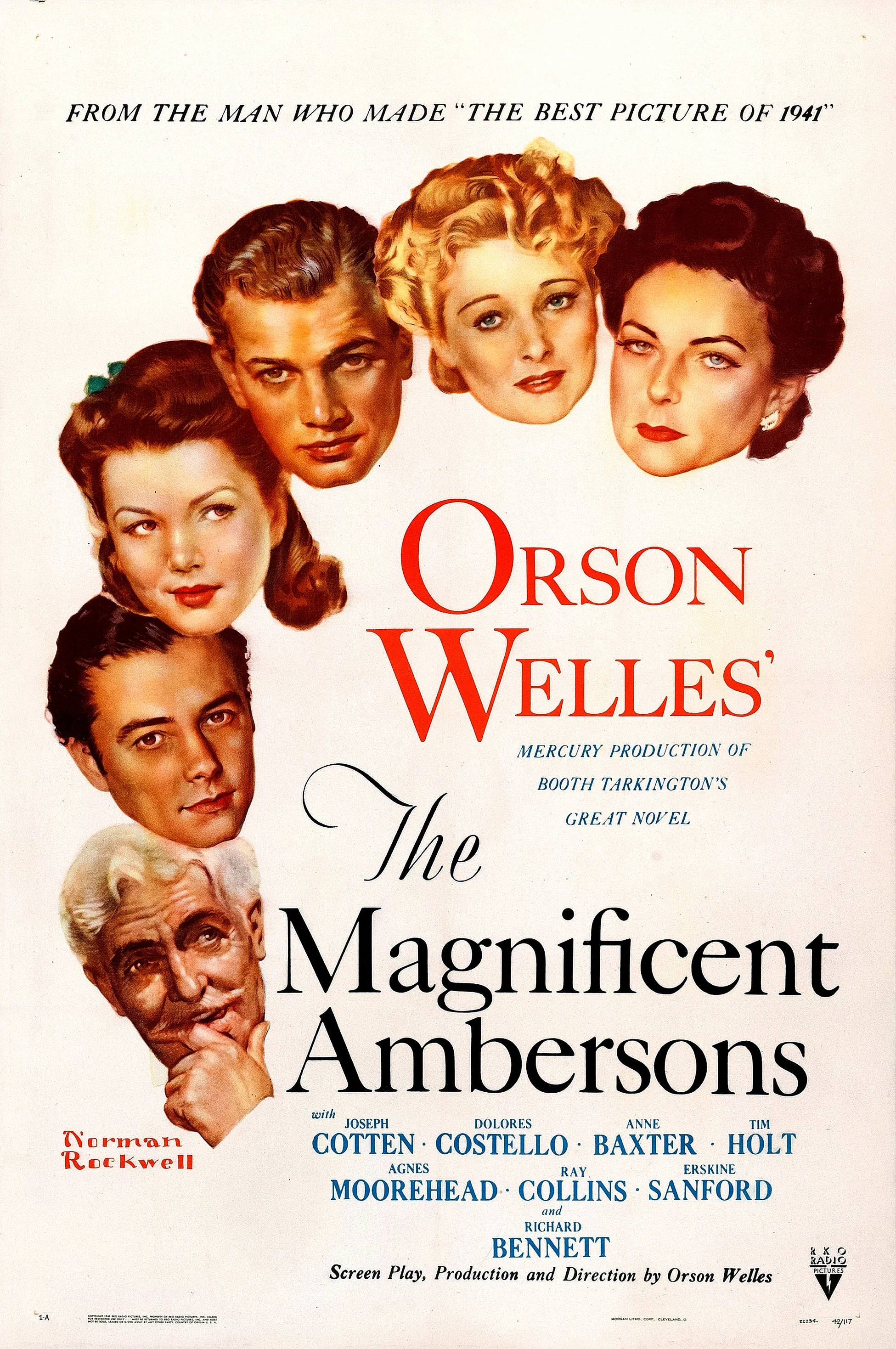Director: Orson Welles
Cast: Joseph Cotten, Dolores Costello, Anne Baxter, Tim Holt*
Have I Seen it Before: Yes, but it’s been a number of years. I was probably a teenager when I first watched it, because, I was, ultimately, that teenager.
Did I Like It: I may be a bad fan of the films of Orson Welles, despite my compulsive need to do homework on the subject. I’ve never fully bought in to the great tragedy of Ambersons. When I first saw it, the whole affair seemed just a bit to twee to get truly invested in, and what’s more, I couldn’t possibly imagine an ending different from the one presented in the theatrical cut.
So I return to the film now. My eye—to say nothing of my taste—is a little more sophisticated. Perhaps the experience will be a bit different now.
And it is, sort of. The story of the Ambersons and their tragedy is just a bit too precious for me, still. In all fairness, it had that quality when I finally brought myself to read the Booth Tarkington novel a few years back, in an effort to gai na bit more insight into the Welles mindset.
But that’s not the point of this film, or any early Welles film, ultimately. Content is incidental. Had he bowed to studio pressure and made War of the Worlds as a feature after he was brought to Hollywood, it would have been the technique behind that story that made a classic film. Citizen Kane (1941) is much the same way. And so is Ambersons.
Which is what makes the truncated ending so odd to me now. The film has long stretches that are just as vibrant and unexpected as Kane, but it’s all punctuated by one of the more blandly staged scenes of the era. It sticks out like a sore thumb. I really don’t know why a studio would have taken a film away from Welles, especially during this period**. A Welles film not directed by Welles misses the entire point of the exercise.
*For all of the film’s issues, I’ll never understand why Welles himself didn’t play the adult George. He was still the right age at the time. Then again, my main complaint about depictions of Welles in the 30s and 40s is that he always seems far older than a man in his 20s. Maybe he was never very boyish. It would be hard to go from even the younger version of Kane to someone so impish.
**All right, I kind of get it. Any responsible leader of business would probably have a hard time giving Welles a blank check twice at that point in time.

